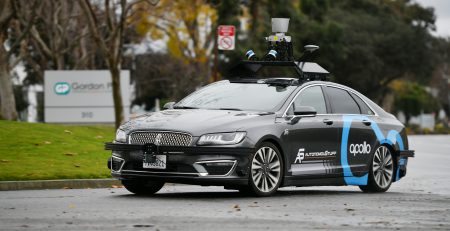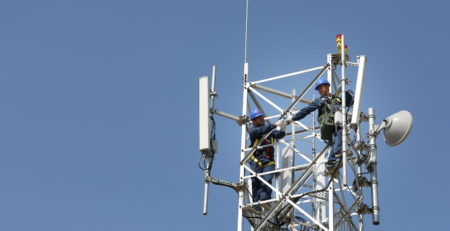Telco-webscale collaboration growing in 2021
Telco-webscale collaboration gains momentum in January 2021
One key research theme for MTN Consulting in 2021 is the impact of the cloud on how telcos run their networks. Among other things, this involves a growing level of collaboration between telcos and the webscale sector, particularly the cloud services divisions of Alphabet (GCP), Alibaba (AliCloud) Amazon (AWS), Microsoft (Azure), and Tencent (Tencent Cloud). The three US-based providers are especially important given their global scope. In our annual forecast of network operator spending, published in late December 2020, we advised telcos to embrace collaboration with the webscale sector:
“Telcos remain constrained at the top line and will remain in the “running to stand still” mode that has characterized their last decade. They will continue to shift towards more software-centric operations and automation of networks and customer touch points. What will become far more important is for telcos to actively collaborate with webscale operators … in order to operate profitable businesses. The webscale sector is now targeting the telecom sector actively as a vertical market. Successful telcos will embrace the new webscale offerings to lower their network costs, digitally transform their internal operations, and develop new services more rapidly.”
In 2021, we already see this collaboration growing, much of which fits into the general theme of telco cloud, broadly defined. As such we are tracking the growing deals and partnerships related to this collaboration. Here is a brief recap of recent developments:
Amazon elevates AWS Chief Andy Jasser to CEO, Bezos steps back
On February 3, Amazon announced that AWS’ current CEO, Andy Jassy, would take over for Jeff Bezos as the company’s CEO in a few months. Amazon founder and current CEO, Jeff Bezos, will transition to executive chair of Amazon’s board. This announcement doesn’t relate strictly relate to telco cloud but is a sign of the success of Amazon’s AWS division, which has marketed heavily to telcos in the last two years.
- Story at The Verge:
- More about AWS offerings for the telecom vertical
Rakuten Communications Platform picking up steam
On February 5, Japanese greenfield mobile player Rakuten announced that it has 15 global customers for its RCP, and “these are not small customers. Some of them are very, very massive”, per CTO Tareq Amin. Rakuten’s RCP is essentially the company’s effort to sell its approach to building disaggregated, virtualized cloud-based mobile networks to the rest of the mobile industry. The RCP effort is ambitious and faces competitors across the industry, including from the mobile operators’ network divisions themselves, but it clearly has potential. Telcos are looking to cut operational costs and simplify networks, and Rakuten has some valuable experience to offer.
- Story at IEEE ComSoc
- Another view, focused on Jio’s budding efforts to do something similar
AWS and Telstra sign framework agreement on 5G
On January 27, Telstra announced a new agreement with Amazon Web Services focused on developing “differentiated multi-access edge computing solutions.” AWS says its edge computing solutions will allow Telstra to “build and deploy applications even closer to its customers, and deliver more seamless user experiences in such areas as industrial robotic and drone automation, connected vehicles, ML-assisted healthcare, and immersive entertainment.” Related to the AWS deal, Telstra will be setting up a “cloud guild” to train up to 4,000 of its employees on AWS cloud operations.
- Telstra news release
Ford and Google tie up on connected cars
On February 1, Ford and Google entered into a 6-year deal worth hundreds of millions of dollars, under which Google will be responsible for much of the car company’s in-vehicle connectivity, as well as cloud computing and other technology services.
One potential revenue opportunity for telcos lies in the area of connected cars, aka autonomous vehicles. The market for true autonomy is years away, but will inevitably require a highly responsive, low latency network. Telcos should be in the pole position to enable this level of performance (and reap the revenue upside), but increasingly they are relying on webscale operators to provide edge computing support for 5G. For the Ford-Google deal, it’s not clear if Google itself will need partnerships with telcos at the edge of their mobile networks to make the connectivity piece work. If not, this deal calls into question whether telcos will play a significant role in the connected car market. This is definitely a space to watch.
- News release from Ford
Singtel works with Microsoft Azure on 5G edge computing
On February 2, Singtel announced it would rely on Azure for 5G edge computing, with trials planned for later in 2021. As with the Telstra-AWS deal mentioned above, Singtel expects the Azure platform to enable enterprises to deploy a range of new applications requiring low latency, such as autonomous vehicles, drones, robots, and virtual/augmented reality.
- Singtel news release
Google and Nokia partner to help telcos deploy 5G edge computing
On January 14, Google Cloud agreed to work with Nokia to develop solutions aimed at telcos deploying 5G in need of edge computing support. The idea is to make it easier for telcos to build and deploy cloud-native applications across public and private clouds and edge locations. Again, like Telstra and Singtel above, the focus is likely to be on applications requiring low latency and back-end cloud support.
The collaboration relies heavily on Anthos, Google’s Kubernetes-based application management platform. Google Cloud is signing similar partnerships directly with telcos for 5G mobile edge computing solutions, but working with Nokia may give both an edge at least when Nokia supplies the key mobile network components.
- News release from Nokia
Huawei shifts Richard Yi to head the Cloud division
As Huawei has faced more challenges in its carrier networks division over the last two years, the company has started to shift emphasis to services, software and its Huawei Cloud division. R&D efforts have matched that shift. Now a big executive change also reflects the change. On January 27, Huawei named Richard Yu as the head of Huawei Cloud. Yu’s previous assignment was to oversee the Consumer Business Group in charge of devices/handsets.
Huawei remains the #1 global supplier to telcos, and has strength across a wide range of product lines. Huawei Cloud has steadily been expanding its overseas data center infrastructure, largely built off of Huawei-developed products (servers, storage, power solutions, etc.). Huawei has a clear opportunity to push ahead into cloud services with a focus on the telco market, and has incentive to do this given its ongoing supply chain constraints. The vendor inevitably will struggle with supply chain issues on the server side as well, however, as long as it’s blocked from reliance on companies like TSMC and ASML. This is a space to watch closely in 2021.
- See more at Asia Times
Optus using Google Cloud for customer service transformation
In a much different kind of announcement, Australia’s Optus announced on January 19 that it would rely on a Google Cloud contact center to power a customer service transformation effort. This is a three year partnership, comprising three GCP products: Dialogflow for automating interactions and self-service, Agent Assist to help contact center agents find information while they are on calls, and a contact center “insights” tool. What’s notable here is that some of the more traditional software- and services-focused telecom vendors provide similar platforms to what GCP is offering. The webscale providers are clearly going to be competing more directly with these specialist telecom vendors in coming years.
- Google Cloud news release









